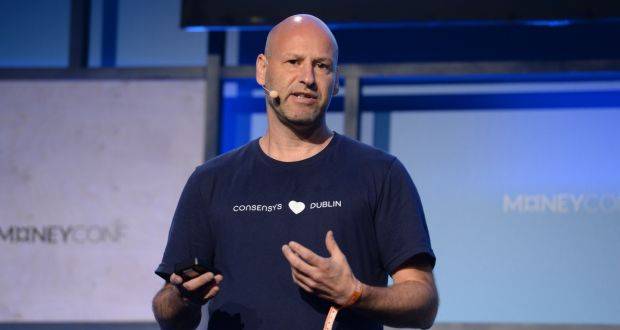ConsenSys Launches ConsenSys Rollups With The Support Of Mastercard
New York, NY, December 16, 2021 — Today, ConsenSys, the leading Ethereum software company, announced the launch of ConsenSys Rollups , to provide enterprise-grade scalability to leading financial organizations, addressing the key use case of scalable applications on the Ethereum blockchain. ConsenSys leveraged the expertise of Mastercard’s engineering team to design the ConsenSys Rollups solution.

ConsenSys Launches ConsenSys Rollups With The Support Of Mastercard
The creativity of projects on Ethereum is exploding in areas such as decentralized finance (DeFi), non-fungible tokens (NFT), gaming, Web 3.0 and the metaverse. Ethereum’s usage is at an all-time-high, with the number of Ethereum addresses exceeding 177 million and tens of thousands more added each day. While high network usage indicates strong adoption, it also establishes a need for scalability and privacy-enhancing solutions.
With this in mind, ConsenSys engaged Mastercard to co-develop key building blocks to make blockchain technology scalable on the Ethereum Mainnet or for private use; providing benefits for all stakeholders in the ecosystem.
ConsenSys Rollups is an innovative modular software solution for permissioned blockchain applications focused on providing scalability and privacy capabilities that can be connected to any Ethereum Virtual Machine (EVM)-compatible blockchain. It can be used on the Ethereum Mainnet, or on private ConsenSys Quorum networks. ConsenSys Rollups leverage zero-knowledge (ZK) proofs to protect specific transaction elements, such as account balances, sender, recipient, and amount, to prevent this important transaction data from being shared publicly across the network – significantly enhancing the privacy and confidentiality of transactions. Zero-knowledge proof technologies enable one party to verify their knowledge of something to another party without having to convey the information itself. ZK proofs can then be used to verify and certify batches of transactions without having to execute them directly on the blockchain network. Solutions built with ConsenSys Rollups can currently achieve a throughput of up to 10,000 transactions per second (TPS) on a private chain while only 300 TPS can be achieved on private chains and 15 on the Ethereum Mainnet.
Programmability on zero-knowledge rollups is designed to enable additional functionalities in the future. Even higher transaction throughputs are expected to be possible through reliance on trusted parties for data availability.
“ConsenSys Rollups enables vastly more scalability in addition to strong privacy protections to both enhance solutions for existing use-cases and enable new use-cases. This innovative solution will help accelerate the building of the future of finance”, said Madeline Murray, Global Lead of Protocol Engineering at ConsenSys.
ConsenSys Rollups will enable more types of blockchain use cases
By increasing scalability and confidentiality for asset transfers, ConsenSys Rollups enables the implementation of new, innovative use-cases including:
• Central Bank Digital Currencies(CBDCs): CBDCs issuance on top of a ConsenSys Rollups powered Quorum network can provide scalability and privacy capabilities for digital currency transfers among central banks, commercial banks, and retail users.
• Decentralized Exchanges (DEXs): DEXs built with Rollups will bring scalability to Decentralized Finance (DeFi) and NFTs, and more use cases on Ethereum that need faster settlement but the security guarantees of Ethereum.
• Micropayments: Micro payment applications that see users pay, for example, on a per-stream or per-view basis will require high throughput to properly function as large numbers of users interact with platforms and decentralized applications (dapps). Rollups on mainnet will allow Ethereum to scale to meet the demand of new Web3 economic paradigms without network congestion, high fees, or finality challenges.
• Private transfer and taxes: ConsenSys Rollups open a new pattern for confidentiality on the Ethereum Mainnet, or on Quorum powered networks. With partially anonymous rollups, users can transfer or swap tokens and transact with partial anonymity. Use-cases that require auditability and transparency but also maintain user confidentiality will be enabled with rollup solutions. This could remove the next barrier to entry for more DeFi or cryptocurrency users on new services.
Raj Dhamodharan, Executive Vice President of Digital Assets and Blockchain Products and Partnerships at Mastercard says, “We believe there is real potential in blockchain technology helping to solve real-world problems. We’re in the early stages, but are starting to see efficiencies in how permissioned and private chain product constructs use open-source technologies. Our work with partners like ConsenSys will continue to advance this space.”
ConsenSys Rollups is compatible with all tokens that follow the ERC20 standard.

Founder Dinis Guarda
IntelligentHQ Your New Business Network.
IntelligentHQ is a Business network and an expert source for finance, capital markets and intelligence for thousands of global business professionals, startups, and companies.
We exist at the point of intersection between technology, social media, finance and innovation.
IntelligentHQ leverages innovation and scale of social digital technology, analytics, news, and distribution to create an unparalleled, full digital medium and social business networks spectrum.
IntelligentHQ is working hard, to become a trusted, and indispensable source of business news and analytics, within financial services and its associated supply chains and ecosystems









